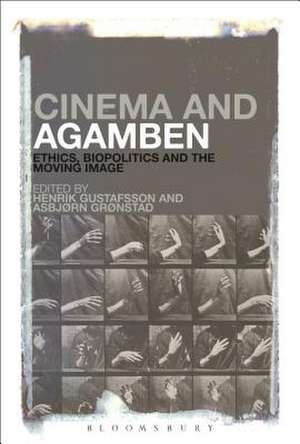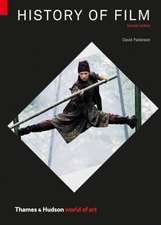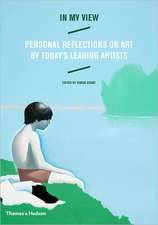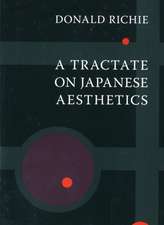Cinema and Agamben: Ethics, Biopolitics and the Moving Image
Editat de Henrik Gustafsson, Asbjorn Gronstaden Limba Engleză Paperback – 26 aug 2015
| Toate formatele și edițiile | Preț | Express |
|---|---|---|
| Paperback (1) | 257.32 lei 43-57 zile | |
| Bloomsbury Publishing – 26 aug 2015 | 257.32 lei 43-57 zile | |
| Hardback (1) | 963.32 lei 43-57 zile | |
| Bloomsbury Publishing – 12 mar 2014 | 963.32 lei 43-57 zile |
Preț: 257.32 lei
Preț vechi: 295.29 lei
-13% Nou
Puncte Express: 386
Preț estimativ în valută:
49.24€ • 51.54$ • 40.98£
49.24€ • 51.54$ • 40.98£
Carte tipărită la comandă
Livrare economică 31 martie-14 aprilie
Preluare comenzi: 021 569.72.76
Specificații
ISBN-13: 9781501308598
ISBN-10: 1501308599
Pagini: 264
Ilustrații: 16 bw illus
Dimensiuni: 152 x 229 x 14 mm
Greutate: 0.35 kg
Editura: Bloomsbury Publishing
Colecția Bloomsbury Academic
Locul publicării:New York, United States
ISBN-10: 1501308599
Pagini: 264
Ilustrații: 16 bw illus
Dimensiuni: 152 x 229 x 14 mm
Greutate: 0.35 kg
Editura: Bloomsbury Publishing
Colecția Bloomsbury Academic
Locul publicării:New York, United States
Caracteristici
Agamben is ripe for analysis, with recent studies devoted to political theory, theology, law, literature
Notă biografică
Henrik Gustafsson is a postdoctoral fellow at the Department of Culture and Literature, University of Tromsø, Norway and a member of the Nomadikon Centre of Visual Culture. He is the author of Out of Site: Landscape and Cultural Reflexivity in New Hollywood Cinema, 1969-1974 (2008) and the editor (together with Asbjørn Grønstad) of Ethics and Images of Pain (2012). Asbjørn Grønstad is Professor of Visual Culture in the Department of Information Science and Media Studies, University of Bergen, Norway, where he is also the director of the Nomadikon Center for Visual Culture. His most recent books are Ethics and Images of Pain (co-edited with Henrik Gustafsson, 2012) and Screening the Unwatchable: Spaces of Negation in Post-Millennial Art Cinema (2011).
Cuprins
List of Illustrations AcknowledgementsIntroduction: Giorgio Agamben and the Shape of Cinema to Come, Asbjørn Grønstad & Henrik GustafssonFor an Ethics of the Cinema, Giorgio AgambenCinema and History: On Jean-Luc Godard, Giorgio AgambenChapter 1. Silence, Gesture, Revelation: The Ethics and Aesthetics of Montage in Godard and Agamben, James S. WilliamsChapter 2. Passion, Agamben and the Gestures of Work, Libby SaxtonChapter 3. Gesture, Time, Movement: David Claerbout meets Giorgio Agamben on the Boulevard du Temple, Janet HarbordChapter 4. Film-of-Life: Agamben's Profanation of the Image, Benjamin NoysChapter 5. Biopolitics of Gesture: Cinema and the Neurological Body, Pasi VäliahoChapter 6. Propositions for a Gestural Cinema: On 'Ciné-Trances' and Jean Rouch's Ritual Documentaries, João Mário GriloChapter 7. Engaging Hand to Hand with the Moving Image: Serra, Viola and Grandrieux's Radical Gestures, Silvia CasiniChaoter 8. Counterfactual, Potential, Virtual: Toward a Philosophical Cinematics, Garrett StewartChapter 9. Montage and the Dark Margin of the Archive, Trond LundemoChapter 10. Remnants of Palestine, or, Archeology after Auschwitz, Henrik GustafssonNOTES ON CONTRIBUTORSINDEX
Recenzii
A superb attempt to think cinema as a matter of life and death, this state-of-the-art collection draws on the philosophy of Giorgio Agamben to cast new light on the movement of images and on the various kinds of cuts that are made in their flow. The human gesture as captured by cinema becomes here a site of potentiality: a breach of the aesthetic, a differentiation from within and hence an opening to the ethico-political.
A crucial, timely intervention in studies of film, philosophy and the work of Giorgio Agamben, this volume explores with insight and acuity the intersections of bioethics, politics, and technologies of the moving image. An essential tool for scholars of film and media theory and philosophy, it combines cutting-edge research with two previously untranslated essays by Agamben. Unpicking the mediality of media, with its fractured histories and disseminated ethical futures, Cinema and Agamben represents a brilliant new milestone in this emerging field.
A crucial, timely intervention in studies of film, philosophy and the work of Giorgio Agamben, this volume explores with insight and acuity the intersections of bioethics, politics, and technologies of the moving image. An essential tool for scholars of film and media theory and philosophy, it combines cutting-edge research with two previously untranslated essays by Agamben. Unpicking the mediality of media, with its fractured histories and disseminated ethical futures, Cinema and Agamben represents a brilliant new milestone in this emerging field.






















